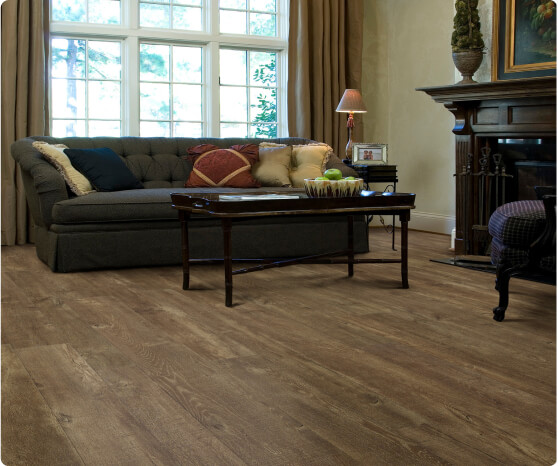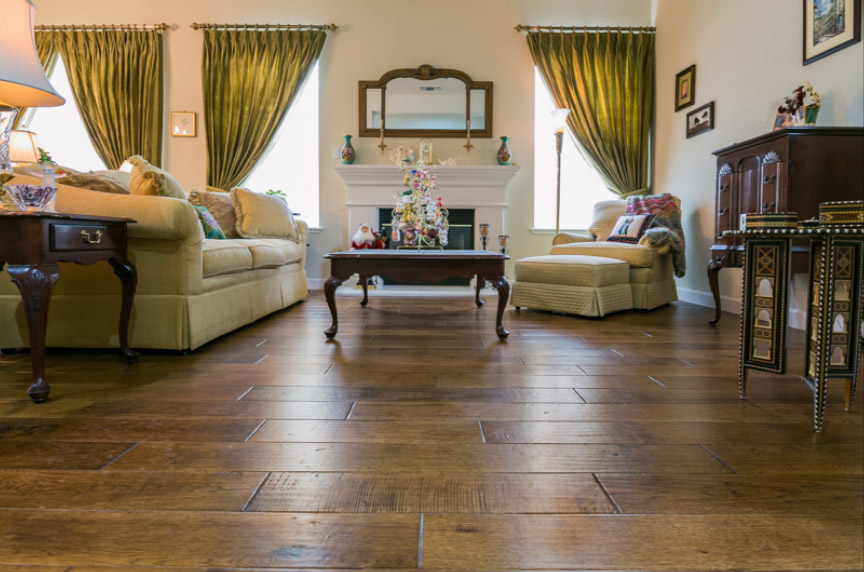Did you know that sandstone natural stone tiles offer a timeless and elegant look, while porcelain and ceramic floor tiles provide versatility, durability, and a wide variety of options for contrast? Understanding the contrast between natural stone and manufactured tiles is crucial when choosing the right flooring option for your space. This article will compare the characteristics, benefits, drawbacks, and costs of natural stone tiles with porcelain and ceramic options. Whether you’re considering clay-based or stone floors, glazed tiles, or other flooring options for your home, this comprehensive comparison of stone tile and finish will help you make an informed decision that suits your style, budget, and maintenance preferences.
Table of Contents
ToggleUnderstanding Natural Stone And Porcelain Tile Structures
Composition And Formation
Natural stone tiles, such as marble, granite, limestone, or slate, are crafted from quarried slabs of rock for floor finish. These stones are cut into thin slices to create tiles with unique patterns and variations due to their organic formation process. On the other hand, porcelain tiles, which have a dense structure, are composed of refined clay that is fired at high temperatures.
The unique patterns in natural stone tiles result from the geological processes that formed them over thousands or even millions of years, resulting in a unique finish. For instance, marble’s distinctive veining and glazed tiles’ finish is created by mineral impurities within the original limestone. In contrast, porcelain tiles, unlike stone floors, have a more uniform appearance due to their manufacturing process involving controlled firing at high temperatures.
Both types of tile offer distinct visual appeal: natural stone provides an authentic look with its one-of-a-kind patterns, while porcelain offers a consistent appearance suitable for modern designs.
Durability And Resistance
This characteristic makes stone floors and stone tile ideal for areas prone to spills or high humidity like kitchens and bathrooms. On the other hand, natural stone tile requires sealing during installation as well as periodic resealing throughout its lifespan in order to maintain its resistance against water penetration and staining.
In terms of hardness, porcelain tile is also harder than most natural stones such as marble or travertine. This means that stone floors and stone tile can withstand heavy foot traffic without showing signs of wear easily. However, natural stone tile may be more susceptible to scratches and chips compared to porcelain but can still last for decades with proper care.
Benefits And Drawbacks Of Natural Stone Tiles
Exceptional Durability
Natural stone tiles are known for their exceptional durability, making them an ideal choice for high-traffic areas in homes or commercial spaces. The robust nature of natural stone tile allows it to withstand heavy foot traffic without showing signs of wear and tear. For instance, in a bustling kitchen where spills and dropped utensils are common occurrences, natural stone tiles can maintain their integrity over time, unlike other flooring options that may show scratches or dents.
Moreover, the durability of natural stone tiles makes them suitable for outdoor applications such as patios or walkways. Their ability to withstand varying weather conditions without deteriorating further emphasizes the resilience of stone tile compared to alternative flooring materials like laminate or vinyl.
Aesthetic Appeal And Added Value
The natural beauty exhibited by natural stone tiles adds significant value and aesthetic appeal to any space they adorn. Each piece of natural stone tile is unique due to variations in color, texture, and veining patterns inherent in the material itself. This uniqueness gives every tile installation a distinctive look that cannot be replicated with synthetic materials.
For example, when used as flooring in a living room or bathroom area, the elegance exuded by the natural formations within each tile creates an inviting ambiance that elevates the overall visual appeal of the space. These tiles often come in various finishes such as polished or honed surfaces which further contribute to their versatility in enhancing different interior design themes.
Cost Considerations And Maintenance Requirements
However, it’s important to note that while natural stone tiles offer numerous benefits including durability and aesthetics, they can also come with some drawbacks. One significant consideration is cost; natural stone tile, being a premium material sourced from quarries across the globe can be more expensive than other types of flooring options like ceramic tile or laminate.
Furthermore, natural stones and tiles require regular maintenance such as sealing treatments and periodic cleaning routines designed specifically for preserving their appearance over time. Failure to adhere to these maintenance requirements may result in staining from spills seeping into porous stones like marble, limestone, or tile.
Durability And Maintenance: Stone Vs. Porcelain And Ceramic
Durability
Porcelain and ceramic tiles are highly durable materials, known for their resistance to scratches, stains, and wear. They are ideal for high-traffic areas in homes or commercial spaces due to tile’s ability to withstand heavy use without showing signs of damage. On the other hand, natural stone tiles, while durable in their own right, may require periodic sealing to protect them from stains and moisture damage. This additional maintenance step is essential in ensuring that natural stone tiles maintain their durability over time.
Both natural stone and manufactured tiles have their unique strengths. For example, porcelain tile’s density makes it particularly resistant to moisture penetration compared to some types of natural stone like marble or limestone.
Maintenance
Maintaining the durability of tile flooring materials involves regular cleaning routines as well as occasional protective treatments. Both natural stone and manufactured tiles can be easily cleaned with mild detergents or specialized cleaners designed for each material’s specific needs.
For instance, when maintaining porcelain or ceramic tile floors’ durability, regular sweeping or vacuuming followed by mopping with a neutral pH cleaner is typically sufficient. However,Using pH-neutral soaps (without any acidic components) helps prevent etching on the surface caused by harsh chemicals present in some cleaners.
Cost And Value Assessment Of Flooring Materials
Initial Cost Comparison
When considering cost, it’s important to note that natural stone tiles generally come with a higher price tag upfront compared to porcelain or ceramic options. For instance, while a square foot of natural stone might cost $15-$30, the same area of porcelain or ceramic tile could range from $3-$10. This substantial difference in initial cost can be a significant factor for homeowners on a tight budget.
On the other hand, value is an essential consideration when choosing flooring materials. While manufactured tiles like porcelain and ceramic may have a lower initial cost, they might not add as much value to your property as natural stone does. Natural stone’s timeless elegance and durability often increase the overall value of a home compared to manufactured alternatives. Homeowners should carefully weigh the long-term benefits against the immediate costs when making this decision.
Considering these factors together will help you make an informed choice about which type of flooring material best suits your needs.
Budget Consideration And Long-Term Investment
Your budget plays a crucial role in determining which flooring option is most suitable for your home. If you’re working within financial constraints, opting for porcelain or ceramic tiles over natural stone can be more feasible due to their lower initial cost.
However, it’s essential to look beyond just the upfront expenses and consider the long-term investment in your property. Natural stone’s durability ensures that it stands the test of time while maintaining its aesthetic appeal, potentially saving you money on replacement or repairs in the future. On top of that, its ability to enhance your home’s value makes it an attractive long-term investment.
Understanding how each type of flooring material aligns with both your immediate financial situation and future goals is vital before making any decisions about renovating or building new floors.

Installation Process For Stone And Manufactured Tiles
Skilled Professionals
Natural stone tiles are heavy, thick, and often come in intricate patterns. This makes their installation a job best left to skilled professionals. The weight and thickness of natural stone tiles require careful handling during the installation process.
Installing natural stone tiles involves precision cutting and fitting due to their irregular shapes and sizes. It’s crucial to have experienced installers who understand how to work with these unique characteristics.
DIY Projects
On the other hand, porcelain and ceramic tiles are generally lighter and more uniform in size, making them easier to handle during installation. As a result, they have become a popular choice for DIY projects among homeowners.
Due to their manageable weight and standardized dimensions, homeowners with basic tiling skills can often successfully install manufactured tiles themselves. This accessibility has contributed significantly to the popularity of porcelain and ceramic tiles as flooring options.
Proper Installation Techniques
Regardless of whether it’s natural stone or manufactured tiles, following proper installation techniques is essential for ensuring longevity and stability. For natural stone tiles, this includes using suitable adhesives that can support the weight of the material effectively.
For both types of tiles, ensuring a level subfloor is critical before beginning the installation process. Properly preparing the subfloor helps prevent issues such as uneven surfaces or cracked tiles over time.
Aesthetic Appeal And Style Variations In Flooring Choices
Unique Colors, Patterns, And Textures
Natural stone tiles are known for their wide variety of unique colors, patterns, and textures that can add character to any space. For instance, granite offers a speckled appearance with various shades of color, while marble exhibits distinctive veining patterns. These natural variations contribute to the beauty and individuality of each tile.
On the other hand, porcelain and ceramic tiles have the ability to mimic the appearance of natural stone or come in a myriad of designs including wood, marble, or concrete looks. This allows homeowners to achieve the desired aesthetic style without necessarily using natural materials. The choice between natural stone and manufactured tiles ultimately depends on one’s specific design vision and preferences for colors, patterns, and surface texture.
For example:
- Natural slate tiles showcase stunning earthy tones with unique clefts that create a rustic feel.
- Porcelain tiles can replicate the look of luxurious white marble without some of its maintenance requirements.
Design Vision Considerations
. Natural stones may exhibit more wear over time in high-traffic areas due to their porous nature compared to non-porous manufactured options which are more resistant to staining.
Moreover:
- The grout lines in both types play an essential role in determining overall aesthetics.
- While natural stone emphasizes contrast with grout lines adding depth; manufactured tiles offer uniformity when matched seamlessly.
- Homeowners should also consider how different choices complement their existing interior elements such as furniture pieces and wall colors.
Moisture And Stain Resistance In Flooring Materials
Susceptibility To Water Damage
Natural stone tiles, if not properly sealed, can be more prone to water damage. This makes them less suitable for wet areas like bathrooms where moisture levels are high. For instance, marble and limestone are particularly susceptible to water damage if not adequately maintained.
On the other hand, porcelain and ceramic tiles boast excellent moisture resistance. They are highly suitable for spaces with elevated moisture levels such as bathrooms, kitchens, or even outdoor areas like patios. These types of manufactured tiles provide a durable solution that stands up well against water exposure without compromising their integrity.
Stain Resistance
Both natural stone and manufactured tiles have the potential to resist stains when properly maintained. Natural stones like granite or slate can be treated with sealants to enhance their ability to repel stains caused by spills or other substances.
Similarly, porcelain and ceramic tiles also offer impressive stain resistance capabilities due to their non-porous nature when glazed. This feature allows these types of flooring materials to withstand staining from various liquids including coffee spills or food splatters in kitchen settings.
Choosing The Right Material For Your Flooring Project
Specific Needs
When deciding between natural stone tiles and other flooring options, it’s crucial to consider the specific needs of your space. Evaluate factors like foot traffic, moisture levels, and design preferences. For areas with high foot traffic, durable materials like natural stone or certain manufactured tiles might be more suitable. Spaces prone to moisture may benefit from water-resistant options such as porcelain or ceramic tiles.
Consider your project’s unique requirements when choosing between flooring materials. If you’re looking for a luxurious and timeless aesthetic, natural stone could be an ideal choice, offering a distinctive appeal that complements various design styles. On the other hand, if you’re seeking a wide range of colors and patterns at different price points, manufactured tiles provide versatility without compromising on style.
Budget Constraints
Assessing your budget constraints is essential in making an informed decision about new flooring materials. While natural stone exudes elegance and sophistication, it often comes with a higher price tag compared to some manufactured tile options like vinyl or laminate flooring. However, it’s important to factor in long-term maintenance costs as well; while some manufactured tiles are cost-effective initially, they may require more frequent replacements due to wear and tear.
Before finalizing your choice of flooring material based solely on upfront costs, consider the long-term implications of maintenance expenses associated with each option. For instance, while natural stone requires periodic sealing and specialized cleaning products for longevity, certain engineered tile varieties offer low-maintenance benefits that can result in significant savings over time.
Expert Advice
Consulting with flooring professionals can provide valuable insights tailored to your project requirements. Flooring experts can offer guidance on selecting the most suitable material based on factors such as foot traffic intensity, moisture levels within the space, and desired aesthetics. Additionally, they can advise you on efficient cleaning methods specific to each material type, helping you make an informed decision that aligns with both short-term goals and long-term expectations.
Popular Stone And Tile Flooring Types And Their Characteristics
Marble
Marble is a luxurious natural stone known for its elegance. It exudes a timeless beauty that can elevate any space. However, it requires regular maintenance to preserve its shine. This means periodic sealing to protect the surface from stains and etching. Despite its stunning appearance, marble is susceptible to scratches and may not be suitable for high-traffic areas.
Marble’s exquisite veining patterns make it an ideal choice for creating visually striking floors or accentuating specific areas such as foyers or bathrooms. Its classic appeal adds sophistication to any room, making it a popular choice among homeowners who prioritize aesthetics over practicality.
Travertine
Travertine offers a unique, rustic appearance due to its porous nature and earthy tones ranging from ivory to golden hues. It is often used for outdoor applications such as patios and pool decks due to its durability in various weather conditions. While travertine tiles are less slippery when compared to other natural stones, they still require regular cleaning and sealing since their porous composition makes them prone to staining.
The distinct character of travertine lies in the cavities within the stone that can be filled or left unfilled during installation, providing different aesthetic outcomes based on personal preference. Its ability to withstand extreme temperatures makes it an appealing option for both indoor and outdoor spaces seeking a warm, inviting ambiance.
Porcelain Tiles
Porcelain tiles have gained popularity due to their ability to mimic the look of marble or other natural stones while offering enhanced durability and stain resistance. These tiles are manufactured using finely ground sand fused at high temperatures which results in dense, hard-wearing surfaces with low water absorption rates.
Their versatility allows them to be installed in various settings including kitchens, bathrooms, living rooms, or even commercial spaces where heavy foot traffic is expected. The wide range of colors and textures available provides homeowners with abundant design options without compromising on performance.
Conclusion: Making An Informed Flooring Decision
Specific Needs
When choosing between natural stone and porcelain/ceramic tiles, it’s crucial to consider the specific needs of your space, budget, and desired aesthetic. Natural stone tiles offer timeless beauty but require regular maintenance and may be more expensive upfront. On the other hand, porcelain and ceramic tiles provide versatility, durability, and lower initial costs but may not have the same level of elegance as natural stone.
Think about the traffic level and the function of the area. For high-traffic areas like kitchens or hallways, porcelain or ceramic tiles might be a better choice due to their durability. However, for a more formal space like a living room or foyer, the elegant appeal of natural stone could be the perfect fit.
Consider your budget as well. While natural stone tiles can be more expensive per square foot than porcelain or ceramic options, they can add significant value to your home. If you’re working with a limited budget, porcelain or ceramic tiles might be the more practical choice.
Maintenance And Aesthetic
The maintenance requirements and desired aesthetic also play a significant role in making an informed flooring decision. Natural stone tiles, with their unique veining and finish, can bring a luxurious and sophisticated look to any space. However, they require regular sealing to prevent staining and damage from moisture.
On the other hand, porcelain and ceramic tiles come in a wide range of finishes that can mimic the look of natural stone without the same level of maintenance. Many homeowners appreciate that these tiles are easy to clean and maintain, making them ideal for busy households.
In addition to considering aesthetics, think about how much time you’re willing to spend on maintenance. If you prefer a low-maintenance option that still offers visual appeal, porcelain or ceramic tiles might be the way to go.
Frequently Asked Questions
1. What Are The Main Differences Between Natural Stone Tiles And Porcelain/Ceramic Options?
Natural stone tiles offer unique variations in color and texture, while porcelain and ceramic tiles provide more uniformity. Natural stone is also generally more porous than porcelain or ceramic, making it susceptible to staining if not properly sealed.
2. How Do I Decide Between Natural Stone, Porcelain, Or Ceramic For My Flooring Project?
Consider your priorities: if you value a luxurious look with natural variations, go for natural stone. If durability and low maintenance are key, opt for porcelain or ceramic. Assess your lifestyle and the specific needs of the space before making a decision.
3. Are Natural Stone Tiles More Challenging To Maintain Compared To Other Flooring Options?
While natural stone requires periodic sealing to protect against stains and moisture absorption, routine maintenance involves simple cleaning with a neutral pH cleaner. With proper care and regular upkeep, natural stone can maintain its beauty for years without significant hassle.
4. Is There A Significant Price Difference Between Installing Natural Stone Tiles Versus Porcelain Or Ceramic?
Generally, the upfront cost of purchasing and installing natural stone is higher than that of porcelain or ceramic. However, when considering long-term value and durability, along with aesthetic appeal, many find that the investment in natural stone pays off over time.
5. Can I Install Both Types Of Flooring Myself?
Both types can be installed as DIY projects; however working with natural stones may require additional expertise due to their weight variability & irregular shapes. Porcelain & Ceramic tile installation might be easier but still requires precision cutting & leveling skills.
Sources:
/home-improvement/flooring/stone-flooring-buying-guide/
/home-improvement/flooring/types-of-flooring/
/home-improvement/flooring/radiant-heating-floor-cost/
/home-improvement/flooring/best-flooring-installation-companies/

Discover The Elegance Of Natural Stone Flooring At K Floors In Concord, California!
K Floors is more than just a flooring provider; we are your allies in crafting spaces that exude sophistication and durability. Our wide array of natural stone flooring options, from elegant marble to sturdy granite and versatile slate, caters to every preference and requirement. Experience the unique K Floors approach. Our skilled team is ready to assist you, offering complimentary in-home consultations and a selection from the finest natural stone suppliers. Dive into our vast collection and find not just a floor, but a testament to your distinct taste.
At K Floors, we merge time-honored artisanship with contemporary aesthetics, ensuring each natural stone floor we install transforms your space into a haven of comfort and style. Whether it’s for residential or commercial spaces, we are dedicated to delivering excellence and authenticity. Visit us in Concord, California, and embark on your journey to the perfect natural stone flooring with K Floors.
Disclaimer
The materials available on this website are for informational and entertainment purposes only and not to provide legal advice. You should contact your attorney to obtain advice concerning any particular issue or problem. You should not act or refrain from acting based on any content included in this site without seeking legal or other professional advice. The information presented on this website may not reflect the most current flooring developments. No action should be taken in reliance on the information contained on this website and we disclaim all liability concerning actions taken or not taken based on any or all of the contents of this site to the fullest extent permitted by law.




